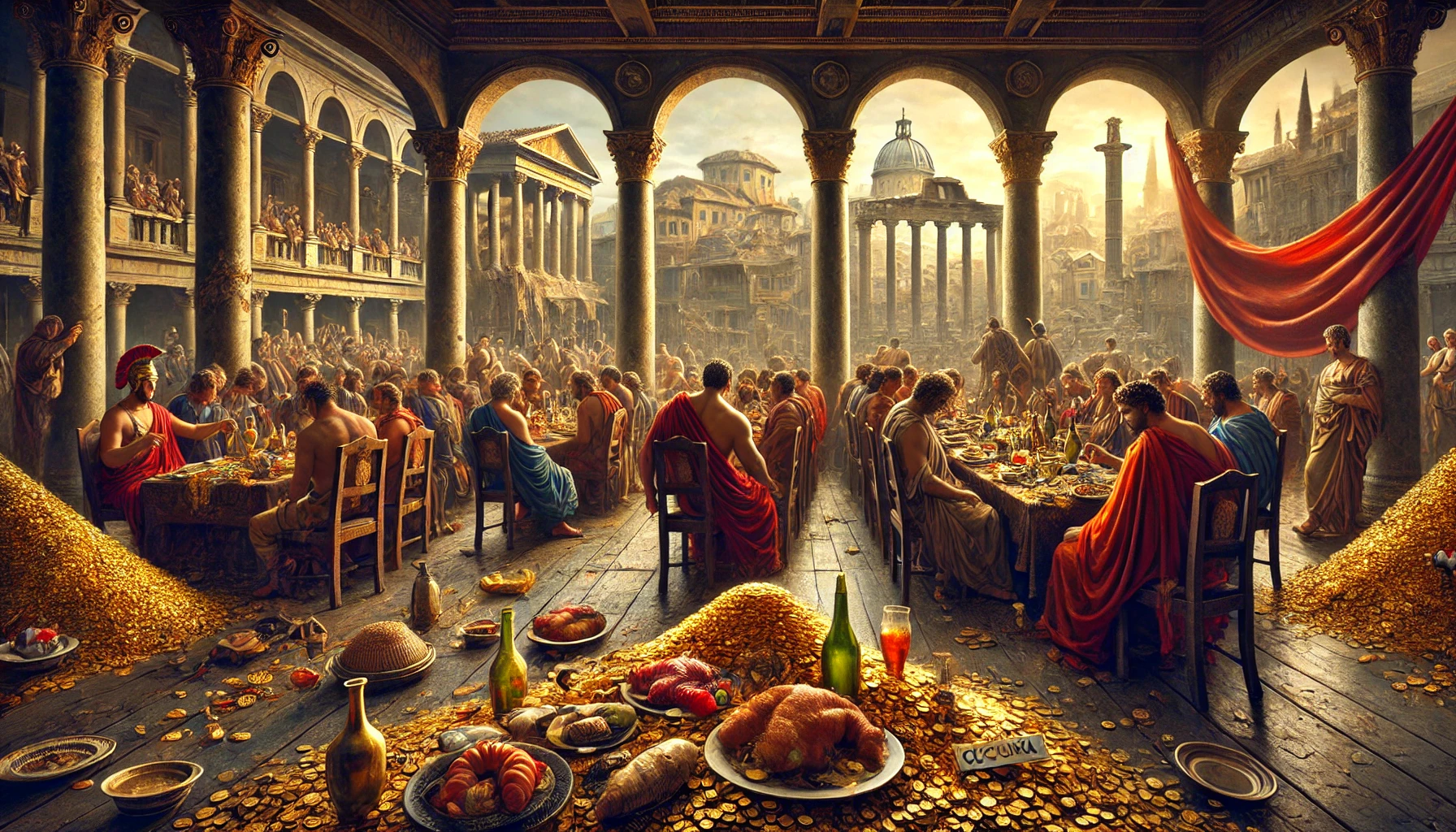Introduction: Rome’s Vision of Cosmic Time
Unlike linear creation myths, Roman mythology envisioned history as a series of divine eras, each marked by prosperity, decay, and renewal. Rooted in poets like Ovid and Virgil, these “Ages of Man” reflect humanity’s evolving relationship with the gods and nature. This article unravels the four epochal phases that defined Rome’s cosmic imagination.
1. The Golden Age: Saturn’s Reign of Harmony
- Ruler: Saturn (Cronus in Greek myth), god of time and harvest.
- Traits: Eternal spring, no labor or strife; Earth freely provided abundance.
- Humanity: Mortals lived like deities, untouched by old age or conflict.
- End: Jupiter overthrew Saturn, initiating a new order.
2. The Silver Age: The Fading of Divine Favor
- Ruler: Jupiter (Zeus), king of the gods.
- Traits: Seasons began; humans learned agriculture but grew arrogant.
- Decline: Mortals abandoned piety, prompting Jupiter to shorten lifespans.
- Symbolism: The introduction of labor and societal hierarchies.
3. The Bronze Age: Warriors and the Rise of Strife
- Traits: Humans forged weapons, waged wars, and defied the gods.
- Culture: Honor-driven but violent; cities and empires emerged.
- Divine Response: Jupiter flooded the world (Deucalion’s Flood in Greek myth), sparing only the righteous.
4. The Iron Age: Humanity’s Fall from Grace
- Traits: Greed, deceit, and moral decay dominated.
- Symbols: Iron tools for war and exploitation; gods withdrew from Earth.
- Legacy: Romans believed they lived in this age, striving to restore virtue through law and piety.
The Role of Prometheus and Janus
- Prometheus: Though Greek, his myth influenced Roman tales of gifting fire (knowledge) to humans, accelerating their ambition—and downfall.
- Janus: The two-faced god of beginnings presided over transitions between eras, symbolizing Rome’s cyclical view of time.
Cultural Impact: From Myth to Empire
- Moral Lessons: The ages warned against hubris and celebrated pietas (duty to gods and state).
- Political Symbolism: Emperors like Augustus invoked the Golden Age to legitimize reforms.
- Literary Legacy: Ovid’s Metamorphoses and Virgil’s Georgics immortalized these eras as cautionary tales.
Conclusion: Echoes of Rome’s Cosmic Order
The mythic ages reveal how Romans grappled with progress and morality, seeing their empire as both a product of decline and a beacon of renewal. These stories endure as reminders that even in darkness, the hope of a new Golden Age persists.
History Peak | Myths That Built Civilizations
Click to rate this post!
[Total: 1 Average: 5]


